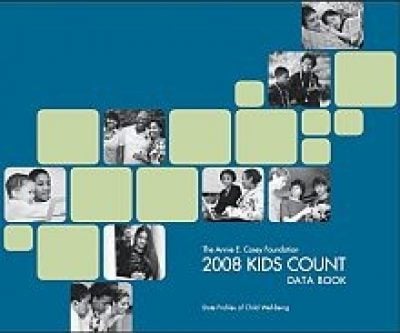Low-Birthweight Babies
Between 2000 and 2005, the percent of babies born with low birthweight increased from 7.6% to 8.2%, reaching its highest level in 40 years. During the same period, the infant mortality rate remained the same.

The KIDS COUNT Data Book is an annual publication that assesses child well-being nationally and across the 50 states. The 2008 report begins with an essay, “A Road Map for Juvenile Justice Reform,” which critiques the prevailing approach to juvenile justice as costly and ineffective, even harmful, and lays out promising alternatives. Arguing that "get tough" policies have produced negative outcomes for young adults and their communities, the essay describes alternative programs and practices that have the potential to transform juvenile justice systems and improve the odds for troubled youth. Concrete examples illustrate how these alternative approaches are working in practice.
The remainder of the report provides national and state data on 10 indicators that reflect a range of factors affecting child well-being, particularly health, adequacy of income, and educational attainment. Based on a composite index of the 10 indicators, the three highest ranked states for child-being overall were New Hampshire, Minnesota and Massachusetts; the three lowest ranked states were Mississippi, Louisiana and New Mexico. At the national level, child well-being stagnated since 2000 after improving in the late 1990s.
Current policies are producing worse outcomes for youth, which then have ripple effects for families and communities.
Alternative policies, programs and practices already exist, providing a roadmap for juvenile justice reform that could produce better outcomes for at-risk young people.